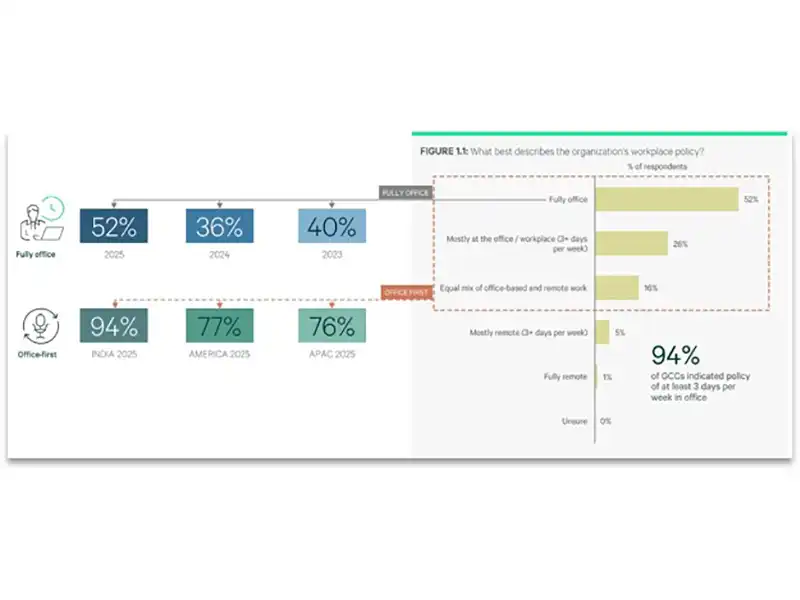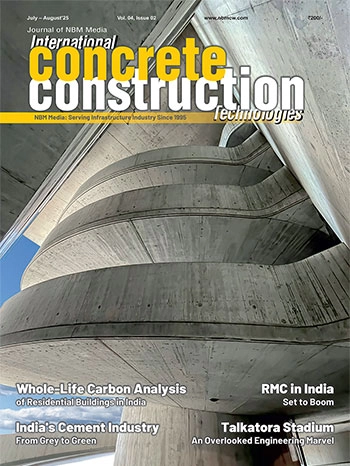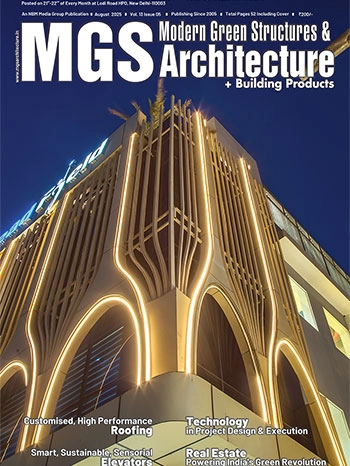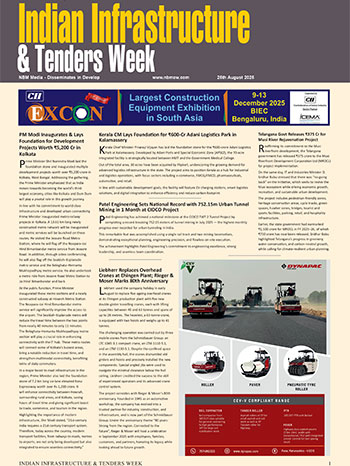India Inc. poised to drive office demand as 85% firms eye expansion over the next two years: CBRE

CBRE South Asia Pvt. Ltd. has released the findings of its annual survey report ‘2025 India Office Occupier Survey’, highlighting that 85% of the surveyed domestic firms are looking to expand their office portfolio over the next two years. This was 73% in 2024.
This intent is underpinned by strong growth witnessed among key sectors, and the accelerated pace of digitalisation across industries. As compared to the pre-COVID-19 period of 2018-19, domestic firms recorded a remarkable resurgence in office leasing during 2023–2024, registering an increase of ~86%.
Over the next two years, the demand for workspaces is also expected to be supported by an office-first policy and tighter hybrid arrangements. The survey revealed that around 94% of the companies prefer their employees working from office at least three days a week. Furthermore, about 52% of the surveyed firms have a policy of working fully from the office, compared to 36% in 2024.
More companies want flex spaces
Flexible workspace operators have firmly established themselves in India’s office leasing landscape, consistently capturing a more than 15% share in overall yearly absorption trends. The survey indicated this momentum is expected to continue, with the number of companies allocating 26–50% of their portfolio to flexible spaces set to rise by more than two-fold over the next two years. Notably, 58% of the surveyed small occupiers plan to place over 10% of their office portfolio in flexible workspaces within the next two years, while the share of large occupiers doing so is projected to rise to 52% by 2027, up from 33% today.
GCCs continue to drive demand
Apart from flexible spaces, global capability centres (GCCs) continue to drive strong office space demand in India, accounting for a ~35-40% share in total annual absorption in recent years. This momentum is underpinned by a strategic shift as GCCs transform from cost-efficient back-office units into high-value innovation hubs focused on R&D, AI, and core engineering. Around 65% of the surveyed GCCs are expected to expand their portfolios over the next two years, with BFSI, life sciences, and engineering & manufacturing emerging as the leading sectors. Leasing activity has reflected this growth trajectory, with the average GCC deal sizes also increasing to ~108,000 sq. ft. in H1 2025 from ~91,000 sq. ft. in 2024.
The report further highlighted that nearly 75% of the surveyed GCCs have already defined ESG goals for their real estate portfolios, reflecting the growing prominence of sustainability in occupier strategies. This momentum is set to strengthen further as the government’s Business Responsibility and Sustainability Reporting (BRSR) framework encourages companies to formalise standards and allocate dedicated budgets for sustainability initiatives.
Moreover, there is a growing preference amongst occupiers to expand in smaller cities over the next few years. Companies are increasingly exploring tier-II / III cities as the next growth opportunity, aided by the presence of a skilled talent pool, competitive costs, and developing infrastructure and connectivity.
Anshuman Magazine, Chairman & CEO - India, South-East Asia, Middle East & Africa, CBRE, said, “India’s office market is entering a defining decade, marked by both resilience and reinvention. As occupiers demand future-ready, high-performance workspaces, the industry must respond with strategic upgrades, sustainability-driven retrofits, and digitally integrated ecosystems. The next wave of growth will not only reinforce India’s position as a global office hub but also unlock long-term value across the real estate lifecycle.”
Ram Chandnani, Managing Director – Leasing, CBRE India, said, “Global capability centres and Indian occupiers are shaping the next chapter of the country’s office sector. GCCs alone account for about 35-40% of absorption, driven by their rapid evolution into high-value innovation hubs across AI, engineering, and life sciences. At the same time, flexible workspaces are no longer a secondary option; they are becoming integral to occupier strategies, with adoption levels set to double in the coming years. Together, these forces will redefine workplace models, creating a more dynamic, innovative, and responsible office ecosystem for the future."















